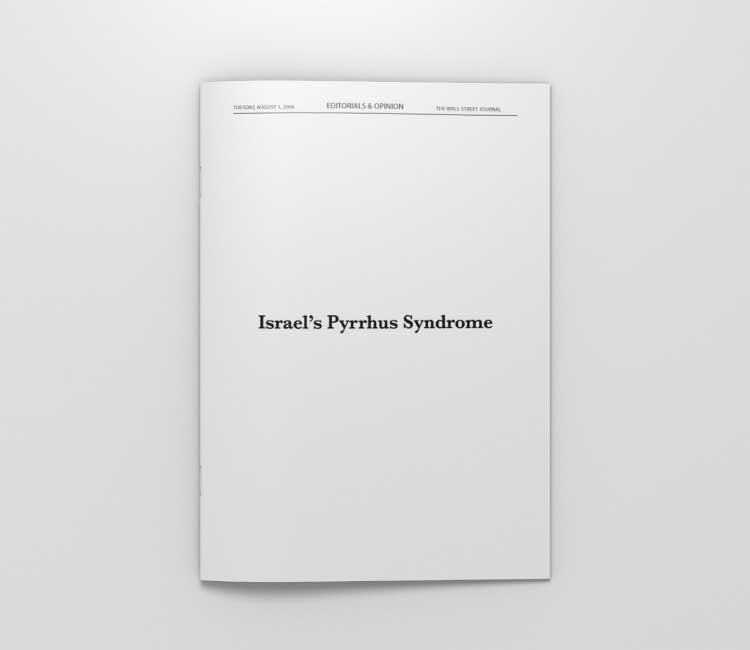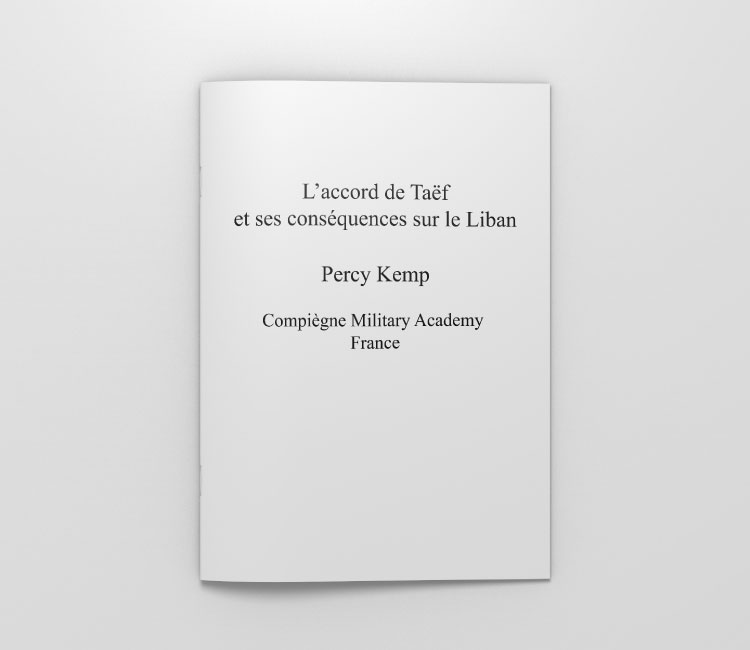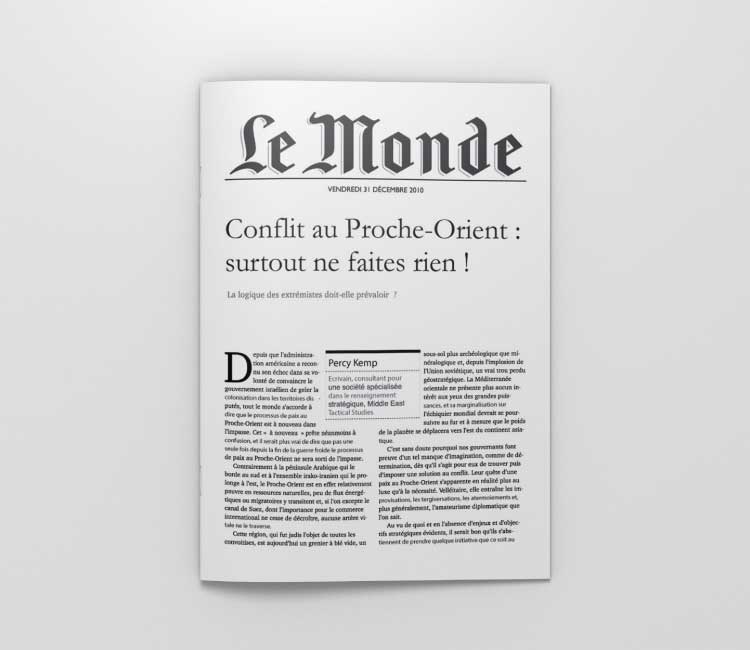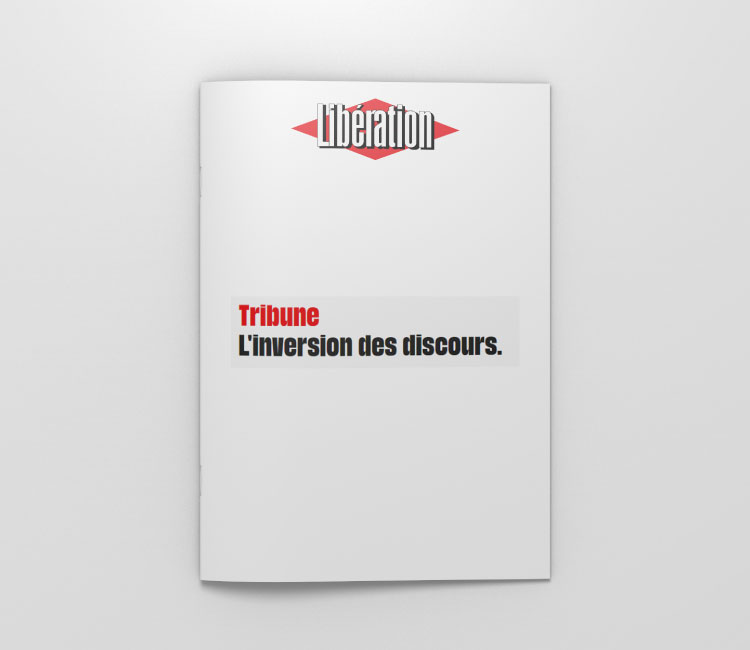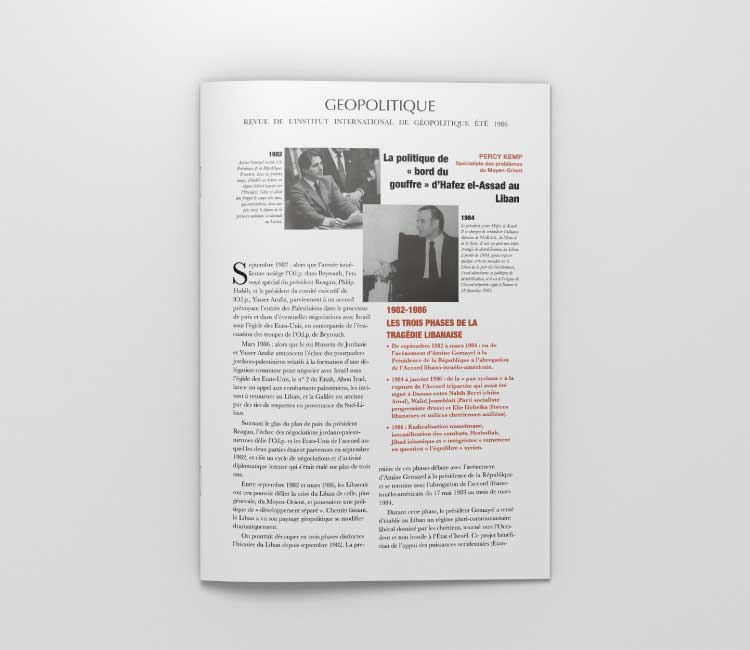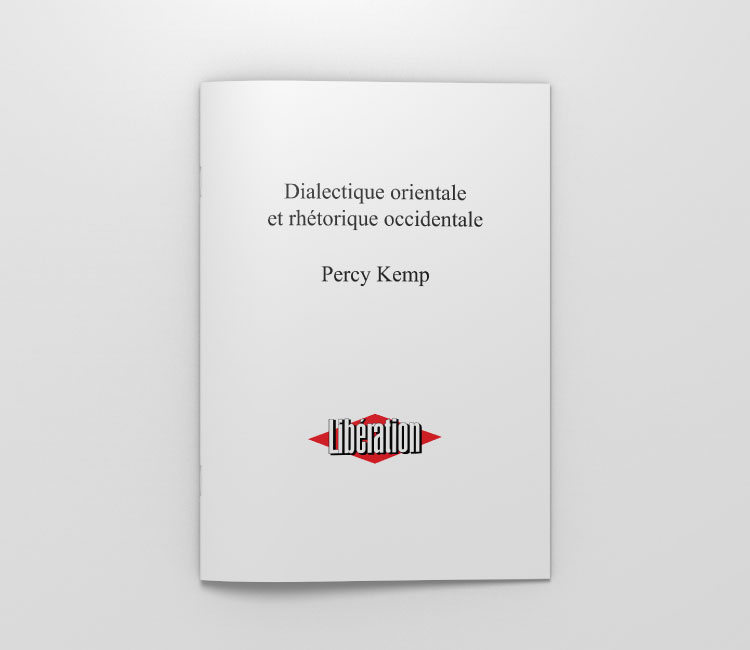By Percy Kemp*
As the violence engulfing Lebanon pauses for an uneasy cease-fire, it’s worth examining whether Israel’s targeting of Hezbollah’s military installations is also helping to weaken the Shite organization’s political power in the country.
Prior to the war, Hezbollah could count on roughly 40% of the Shite vote. Amal, a pro-Syrian movement headed by parliament speaker Nabih Ber- ri, and which Hezbollah superseded in the late 1980s when Iran became a player on the Lebanese scene, attracted another 40%. A vast array of second fiddles collected the rest. Geographically, Hezbollah was at the time in full control of the Eastern Bekaa region along the Syrian border; it outweighed Amal in the Shite suburbs of South Beirut; and it shared influence with it in the south along the Israeli border.
Three days after the beginning of military operations in Lebanon, a senior Israeli officer said Israel had already succeeded in destroying as much as half of Hezbollah’s military infrastructure. Whatever the truth behind such claims, the fact remains that, by then, Israel’s massive bombardment of Shiite areas had pushed Amal and all the other Shiite organizations to rally behind Hezbollah. So even if Israel has succeeded in weakening Hezbollah militarily, politically its offensive can only serve to turn Hezbollah into the undisputed leader of Lebanon’s Shiites.
At the broader national level, prior to the war Hezbollah had entered into an alliance with Gen. Michel Aoun, a popular figure within the Christian community. He fought the Syrians in the 1980s, then went into exile to France before returning home last year as Syrian troops were leaving Lebanon. This rather surprising alliance between Gen. Aoun, an anti-Syrian Christian leader, and Hezbollah, a pro-Syrian and pro-Iranian Shiite organization, was induced by the minority status of the two sides within the parliament and by the objective they both shared of cleansing the public service and ridding the country of corrupt politicians.
On the other hand, Hezbollah was at loggerheads with the “Forces of March 14.” The loose anti-Syrian and pro-American coalition of Sunnis, Druze and Christians is led by Saad Hariri, the leader of the parliamentary majority, whose father (the late Prime Minister Rafik Hariri) was purportedly assassinated by the Syrians in 2005, and by Walid Jum- blatt, the Druze leader whose father was also said to have fallen prey to the Syrians 29 years ago. At the time, Messrs. Hariri and Jumblatt were growing increasingly frustrated with Hezbollah’s refusal to disarm in line with U.N. Security Council Resolution 1559. When Israel launched its offensive, they entertained the hope that a swift blow to Hezbol- lah would quickly force it to lay down its arms. Yet as the scope of military operations widened and Israel started targeting the country’s infrastructure, even shelling Christian areas and attacking Lebanese army barracks, Hezbollah’s stock rose: Gen. Aoun publicly
backed the Shiite organization; Maronite Patriarch Monsignor Sfeir stated that U.N. Resolution 1559 could not be implemented by force; and Hezbollah’s main rivals, Messrs. Hariri and Jumblatt, found themselves in a tight spot and forced to backpedal, demanding, in light of the massive destruction caused by the Israeli bombardments, an immediate cease-fire despite the fact that Hezbollah’s military power was still relatively unscathed. By widening the scope of its operations in Lebanon, Israel may well have succeeded in weakening Hezbollah militarily. But ironically it also allowed Hezbollah to enhance its political standing in the country.
This notwithstanding, Israel has now added a ground offensive to its air, sea and artillery assaults. If matters will now be decided by the fortunes of war, two basic scenarios can be contemplated.
Should Israel succeed in routing Hezbollah and pushing it back north of the Litani River, while wiping out its arsenal of missiles and rockets, then the remains of Hezbollah’s military organization would probably quickly be redirected to protect itself and its Shite allies from their internal Lebanese enemies, and in particular from Messrs. Hariri and Jumblatt. Lebanon would then be in real danger of a civil war pitting Shiites against Sunnis and Druze. The country would enter a period of violence and instability, and Israel’s northern border would not be safer for that.
If, on the other hand, Israel fails to seriously dent Hezbollah’s command structure and military capabilities, the Shite organization would come out as the victor and Messrs. Hariri and Jumblatt would lose out. Again, Israel’s northern border would not be any safer.
Both scenarios are rather gloomy from Israel’s perspective. So much so that one wonders whether, by pursuing a purely military strategy in Lebanon, Israel might not be suffering from a Pyrrhus syndrome. It may well be that like the Grecian king of Epirus, Israel’s generals and strategists are too busy winning their battles to win the war, failing to make political capital out of any of their military victories.
Take U.N. Resolution 1559, for instance. Israel has so far insisted on implementing its purely military clauses, i.e. disarming Hezbollah and deploying the Lebanese army (or an acceptable international expe- ditionary force) along the border in the south. Yet there is far more to Resolution 1559. It also contains a political clause calling for the election of a new president. As the deadlock continues and no internal Lebanese consensus is reached over the implementation of the military clauses of U.N. Resolution 1559, addressing its political clause could prove to be a deadlock-breaking formula.
Back in 1958, when the country was a battleground for pro-Western Lebanese militias fighting anti-Western Lebanese and Syrian militias backed by Egyptian president Nasser, and when U.S. Marines landed on the beaches of Lebanon, parliament convened and elected a president acceptable to all Lebanese factions. He was army Chief Gen. Fouad Shihab, and his mandate ushered in a long period of stability and prosperity for the country, and of security for its neighbors.
The time may now be ripe for parliament to elect a new Fuad Shihab as president. One name that springs to mind is that of army Chief Gen. Michel Sulayman.
Gen. Sulayman indeed commands the respect of the army which will be called upon to deploy swiftly in the South; he has a good standing with Hezbollah and Hezbollah’s foes, Messrs. Hariri and Jumblatt. And he is in a position to reassure Lebanon’s beleaguered Christians that their identity is no longer at risk. Such a president is likely not only to prevent the looming civil strife, but also to convince Lebanon’s fractious leaders and chieftains, including Hezbollah, to eventually delegate their powers to him so as to build a proper state.
The past 30 years of internal strife in Lebanon, and of continued insecurity along Israel’s northern border, show that Israel has a vested interest in the stability of Lebanon. All the more reason why Prime Minister Ehud Olmert ought to stop his military offensive in Lebanon, as it can only result in further chaos. Failing this, the battered yet never despairing Lebanese people might be entitled to say to him what the Spartans said to Pyrrhus when he invaded them: “If you are a god, we have nothing to fear from you, because we are not guilty. If you are a man, there will come another, who will be stronger than you!”
* Mr. Kemp is a Beirut-based novelist and political risk consultant. His latest novel is “The Boone System” (Saqi, 2003).
